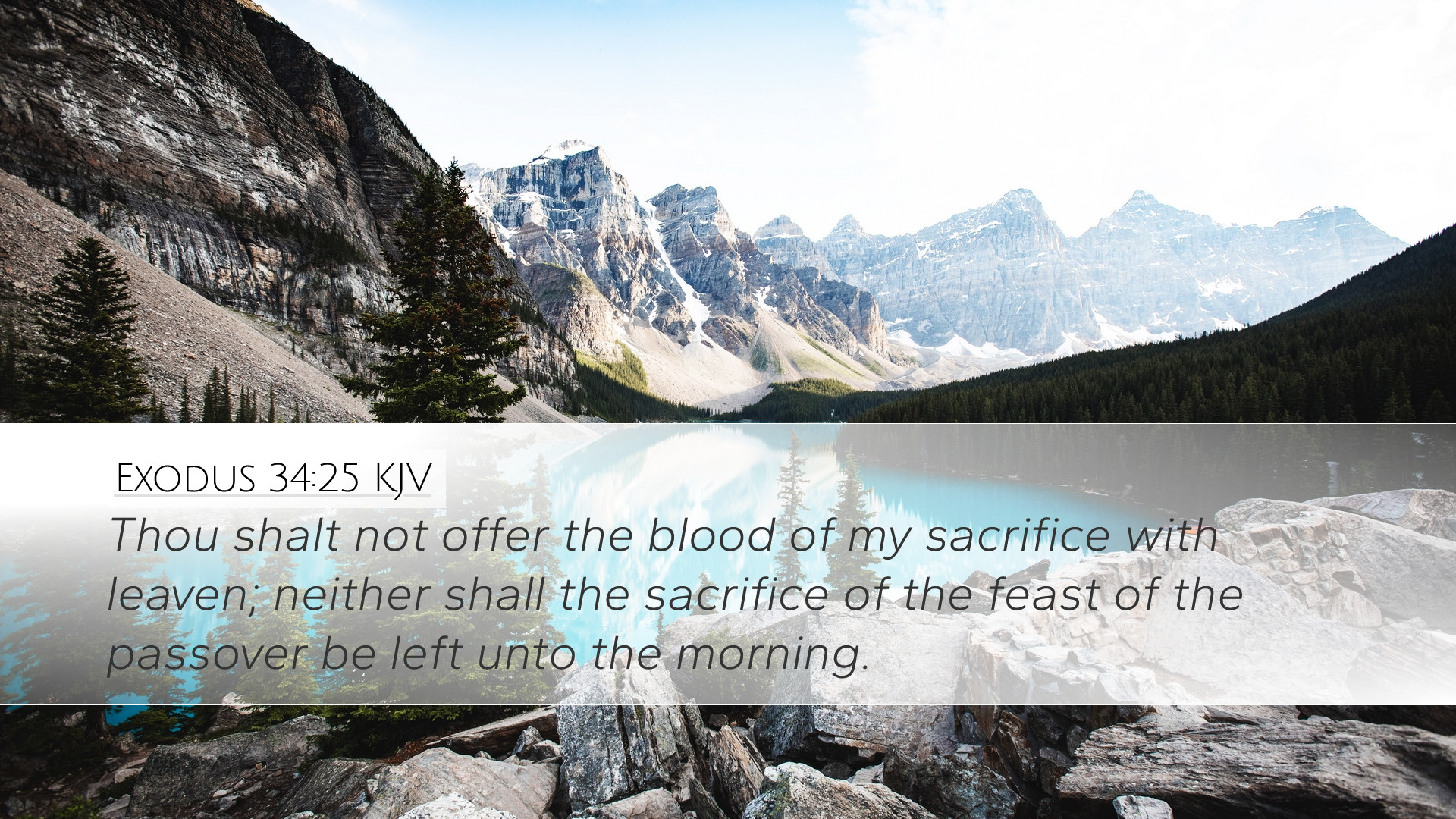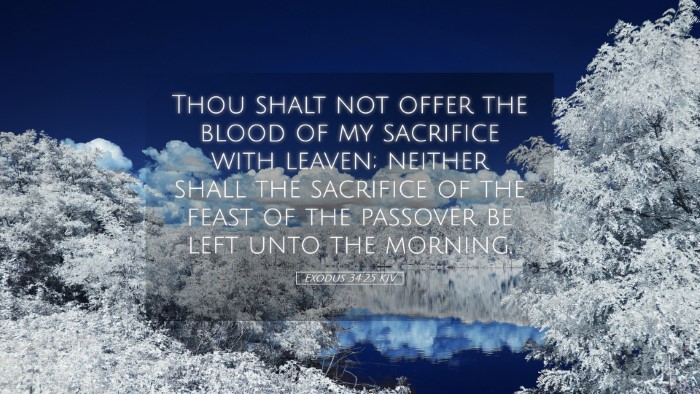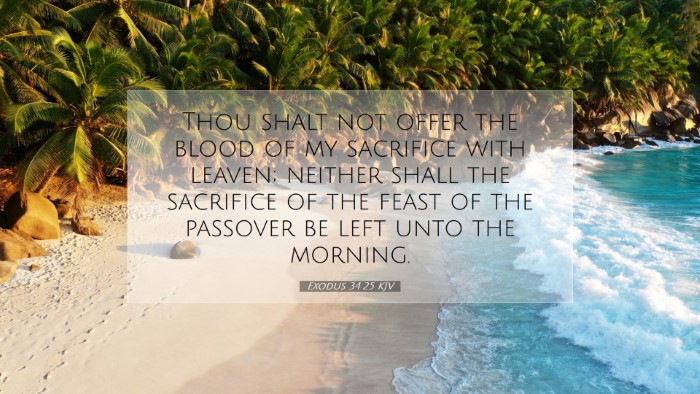Commentary on Exodus 34:25
Exodus 34:25 states: "You shall not offer the blood of My sacrifice with leavened bread; nor shall the fat of My sacrifice remain until morning." This verse is part of the covenant that God establishes with the Israelites following their deliverance from Egypt. It provides essential insights into God’s holiness and the nature of acceptable worship.
Contextual Background
This verse appears within the larger context of God's instructions to Moses regarding the covenant, primarily focusing on the exclusive worship of Yahweh and the observance of various feasts. It is critical for a deeper understanding of this text to consider its placement within the Holiness Code and its implications for Israelite worship.
Textual Analysis
Commentaries highlight several important aspects of Exodus 34:25:
- Blood and Sacrifice: According to Matthew Henry, the blood of sacrifices symbolizes life and is a significant aspect of atonement before God. This verse emphasizes that blood must not be mingled with leaven, which represents corruption and sin.
- Leaven and Holiness: Adam Clarke elucidates that leaven symbolizes sin and imperfection. God's commands to avoid leaven during sacrifices signify the necessity for purity and holiness in worship. When presenting offerings to God, they must be uncontaminated, as God is holy.
- Timeliness of Offerings: The latter part of the verse regarding the fat of the sacrifice is observed from Albert Barnes' perspective as a practical directive emphasizing the importance of timely obedience in worship. Retaining the fat until morning could signify a lack of respect for God's ordained process, highlighting how worship must be conducted according to God's timing and His specifications.
Theological Implications
This verse is rich with theological implications that speak to the character of God and His expectations for His people:
- God's Holiness: The requirement for blood to be without leaven reflects the nature of God as holy and perfect. Matthew Henry asserts that this serves as a reminder that God cannot be approached with unclean hands or hearts.
- Worship and Sacrifice: As Adam Clarke observes, the sacrifices are not just ritualistic performances; they hold deep meaning and significance pertaining to the covenant relationship between God and His people. The sacredness of sacrifices underscores the need for absolute dedication and sincerity in worship.
- Lessons for Today: From a contemporary perspective, Albert Barnes emphasizes that this passage is not merely historical but serves as a model for modern believers about how to approach worship. The principles of purity, reverence, and appropriateness in sacrifices are timeless.
Application for Believers
Pastors, students, and Bible scholars can extract profound applications from Exodus 34:25:
- Personal Holiness: Modern believers are called to live holy lives. The avoidance of leaven underscores the necessity of personal integrity and moral purity in one's life to ensure that worship is pleasing to God.
- Integrity in Worship: This verse challenges congregations to examine their worship practices. Are we offering sacrifices of praise with sincerity and purity, or are we clinging to practices that may inadvertently reflect corruption?
- Understanding Timeliness: The aspect of not allowing the fat to remain until morning speaks to the timely obedience in responding to God's directives. Believers are encouraged to act promptly in their spiritual commitments and responsibilities.
Conclusion
In conclusion, Exodus 34:25 serves as a reminder of the seriousness of our approach to God and the importance of maintaining a posture of holiness in worship. The insights derived from traditional commentaries provide a rich foundation for understanding this verse in the light of God's covenant with His people. Upholding the themes of purity, sincerity, and timeliness in worship remains vital for anyone engaged in the faith, ensuring that offerings to God resonate with reverence and honor.


